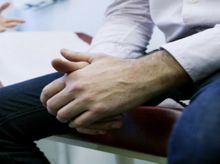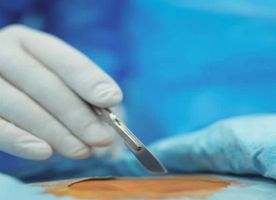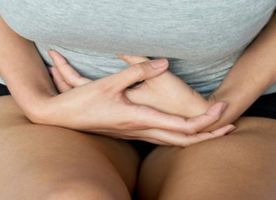Epididymal Cyst Removal in Ampang Jaya
Search and Compare the Best Clinics and Doctors at the Lowest Prices for Epididymal Cyst Removal in Ampang Jaya

















































































































































No Time?
Tell us what you're looking for and we'll reach out to the top clinics all at once
What does the Procedure Involve?
Epididymal cyst removal is carried out under general anaesthesia. In some cases, local anaesthesia with sedative drugs may be used instead. With local anesthesia, you will be awake but the affected area will be numbed. Sedative drugs will help you feel more relaxed.
Your surgeon will start the procedure by making a small incision in your scrotum over the cyst. Then, the cyst is carefully separated from the tissue that surrounds it and removed. Your surgeon will try to preserve as much of the epididymis as possible. However, sometimes a portion of the entire epididymis has to be removed as separating the two can cause damage to other structures.
Once the cyst is removed, your surgeon will close the epididymis and the skin incision using dissolvable stitches, which do not need removing.
How Long Should I Stay in Ampang Jaya?
Epididymal cyst removal is usually performed as an outpatient procedure, meaning you do not need to stay overnight in the hospital. You may leave as soon as the effects of the anaesthesia subside. Still, you need to plan to stay in Ampang Jaya for 5 to 7 days for initial recovery and follow-up checkups.
What's the Recovery Time?
You should minimize activity and rest as much as you can for the first two days after your epididymal cyst removal in order to prevent swelling. You may be able to do some light activities and get back to work (office job) within 3 to 5 days following the surgery. In general, you should be able to return to your normal activity in around a week. However, strenuous exercise and heavy lifting must be avoided for at least 2 weeks. Therefore, if you have a manual job, take at least 2 weeks off work. Since the sutures used are typically self-dissolving, they will fall out on their own within two to three weeks following the surgery.
What About Aftercare?
After epididymal cyst removal, you will need to do the following to avoid complications:
-
Your doctor will likely prescribe you painkillers to help ease any pain or discomfort. Make sure to take them as prescribed.
-
If you have any medications you need to take (for other medical conditions you may have) ask your doctor when you can restart your medication.
-
Make sure you have someone to help you out for at least the first 24 hours following your surgery.
-
Avoid driving or operating machinery, such as cookers and other domestic appliances.
-
Avoid drinking alcohol for a few weeks after your surgery.
-
Wear scrotal support and supportive underwear to prevent swelling.
-
Wash the surgical wound daily with soap and water. Make sure to dry it thoroughly with a clean towel in order to prevent infection.
-
You can shower the day after surgery but do not take a bath, swim, use a hot tub, or soak the surgical site in water.
-
Apply ice compresses to the surgical site.
-
Avoid sexual activity until your wound has fully healed and it is comfortable for you to do so.
What's the Success Rate?
Epididymal cyst removal is a safe and efficient procedure. However, as with any surgical procedure, there is a risk of complications and side effects, such as:
-
Recurrence of the cyst or new cyst appearing in the future.
-
Hematoma or blood collection of the testes.
-
Possible infection of the incision or the testes.
-
Chronic pain in the affected area.
-
Testicular ischemia/loss.
-
Shrinkage of the testicle.
-
Reduced fertility.
These complications can be avoided if you choose a board-certified surgeon and follow every post-operative instruction your doctor gives you.
Are there Alternatives to Epididymal Cyst Removal?
The alternatives to epididymal cyst removal are:
-
No treatment – in some cases, if the cyst is not causing any symptoms and is not growing any bigger, your doctor may suggest you leave it alone.
-
Aspiration – during this procedure, your surgeon will drain the fluid from the cyst using a needle.
What Should You Expect Before and After the Procedure
If you experience pain, discomfort, or embarrassment before you undergo epididymal cyst removal, you will not experience them anymore after the surgery. You will be able to enjoy many activities you enjoyed before without having to experience pain.
This information has been accurately sourced and verified by a medical professional for its accuracy, however, we strongly recommend you to consult with your doctor before pursuing medical procedures overseas.







